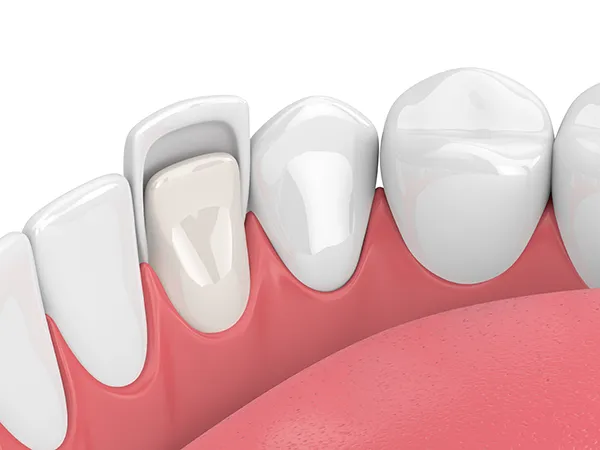Dental Bonding
Dentist McHenry, IL
 Dental bonding involves the use of a material called composite resin. This is a putty-like material which is used to repair abnormalities in teeth following damage or dental treatments. It is versatile in its use, though it can be a bit fragile. After your procedure at McHenry Smile Center, we will provide you with instructions on maintaining your dental bond so that it does not get damaged. Dental bonding involves the use of a material called composite resin. This is a putty-like material which is used to repair abnormalities in teeth following damage or dental treatments. It is versatile in its use, though it can be a bit fragile. After your procedure at McHenry Smile Center, we will provide you with instructions on maintaining your dental bond so that it does not get damaged.
Bonding Uses
Dental bonding is a cosmetic alternative to other types of dental restorations, such as gold or amalgam fillings. It is made to look like your natural tooth, so it is especially beneficial for procedures performed on the front teeth. Bonding is not recommended for the back teeth, since these need to be more durable for chewing. That said, aesthetics is not as important for the back teeth as they are not as noticeable.
Bonding is used in combination with many treatments, such as filling a cavity, repairing a cracked tooth, or protecting tooth roots from gum recession. Bonding can also be used for purely cosmetic treatments, such as for tooth discoloration, lengthening, reshaping, and closing gaps between teeth.
Bonding is not a good restoration option for more severe conditions, though. For instance, if the tooth is damaged too much, then a crown may be necessary. This is an entire cap that covers the tooth rather than a material that fills in a gap. For more severe tooth discoloration, veneers may be a better option instead. These are coverings that go over the front of the tooth to mask the natural tooth’s appearance.
Procedure
A local anesthetic is used if you need treatment in addition to dental bonding. You cannot feel anything when we apply a dental bond, but we will need to numb you in order to drill a cavity. Once any tooth decay is removed or damage is repaired, we can apply the composite resin. Before hardening, our dentist will shape the dental bond to match the shape of your natural tooth. When they are satisfied with the look, they will apply a special light used to “cure” or harden the material instantly. They may also need to give it a quick polish or reshaping once it is hardened.
Maintenance
Composite resin is more fragile than your natural teeth, so some special precautions must be taken, especially for the first few days after the bonding procedure. We will give you more specific instructions on dental bonding maintenance before you leave the appointment.
In general, you can care for bonded teeth in the same way that you would care for your natural teeth. This includes brushing twice a day and flossing at least once a day. Be sure to come to our office for routine professional cleanings every six months.
To prevent chipping, we recommend to avoid hard or chewy foods and not to bite your nails. You will need to avoid dark-pigmented foods and drinks for two days following the bonding in order to prevent staining. Let us know if you have any breakage, discoloration, or other concerns. For additional information on dental bonding, call (815) 578-1000 now. |